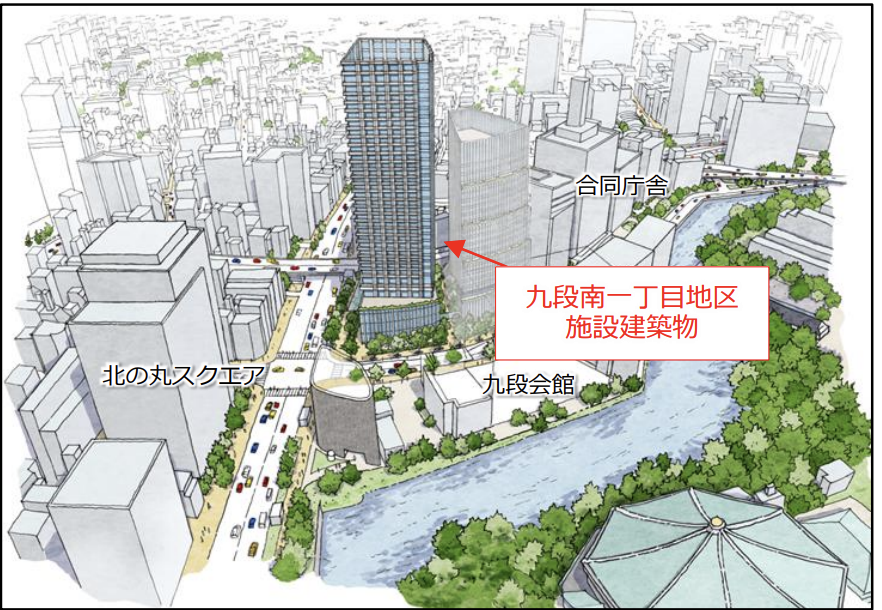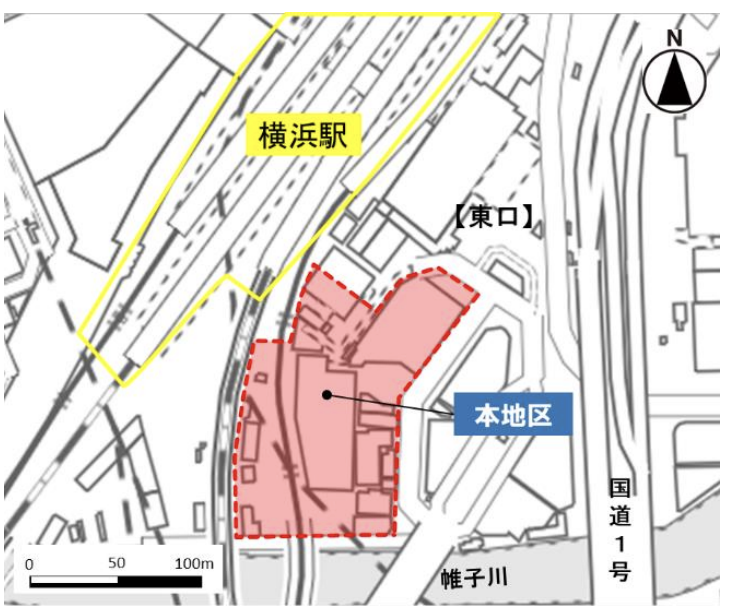When renting a house, many people will hear the term "shikikin" (security deposit). However, surprisingly few people fully understand the exact meaning and structure of a security deposit. A security deposit is one of the most important elements of a rental contract, and is a system that is involved in the entire rental process, from payment at the time of signing the contract to return of the deposit when the tenant moves out.
In recent years, as prices continue to rise and rents continue to skyrocket, reducing the burden of housing costs has become a pressing issue for many people. In particular, the initial costs required when signing a rental contract place a heavy burden on household finances. Among these, the security deposit is an important item that, along with key money, accounts for a large portion of the initial costs.
In this article, as INA&Associates, we will explain security deposits in an easy-to-understand manner based on our many years of experience in the real estate industry. From the basic definition of a security deposit to the latest market trends, and even how to avoid problems when vacating, we provide comprehensive information that will be useful to anyone looking for a rental home.
The revision of the Civil Code, which went into effect in April 2020, clarified the rules regarding security deposits. As a result, the handling of security deposits, which previously depended on judicial precedents, is now clearly defined by law, and the rights of lessees are now more clearly protected. We will explain the current security deposit system in detail, taking these legal changes into consideration.
Basic Knowledge of Security Deposits
What is a security deposit - legal definition and purpose
A security deposit is defined in Article 622-2 of the revised Civil Code, which came into effect in April 2020, as "money delivered by a lessee to a lessor to secure the lessee's obligation to pay rent and other obligations to the lessor arising under the lease, regardless of the name under which the money is paid.
To explain this legal definition in simple terms, a security deposit is money in the nature of a deposit given by a lessee (tenant) to a lessor (landlord/landlord) when renting a rental unit. The main purposes of a security deposit are
Security for rent obligations
In the event of nonpayment of rent, the security deposit can be used to cover unpaid rent. This allows the lessor to ensure the stability of rent income and the lessee to obtain a reprieve against temporary payment difficulties.
Security for restoration costs
The cost of repairing damage caused by the lessee's intention or negligence can be deducted from the security deposit. However, it is clarified by law that the lessee is not required to bear the cost of repairing wear and tear caused by normal use or age-related changes.
Security for Other Obligations
Other obligations arising under the lease agreement (e.g., nonpayment of common service charges, damages for breach of contract, etc.) may also be deducted from the security deposit.
It is important to note that the security deposit is in the nature of a "deposit. When the lease contract ends and the leased property is returned to the lessee, the balance of the security deposit, after deducting the above obligations, is required by law to be returned to the lessee.
Difference between Shikikin and Key Money - The biggest difference is the non-refundability
Along with shikikin, "key money" is often heard of in rental contracts. The two are often confused, but they are very different in nature.
| Item | Deposit | Key money |
|---|---|---|
| Nature | Security Deposit | Gratuities and lump-sum payments |
| Refundability | Refundable in principle | Non-refundable |
| Legal Basis | Civil Code Article 622-2 | Customary system |
| Deductions | Unpaid rent, restoration costs, etc. | None |
| Market rate | 1.06-1.18 months of rent | 1.01-1.14 months of rent |
Features of Security Deposit
As mentioned above, a security deposit is a deposit that functions as collateral. As a rule, the full amount of the security deposit is refundable if the lease contract is properly executed and the property is undamaged; the obligation to return the deposit was clearly stipulated by law with the revision of the Civil Code in 2020.
Characteristics of Key Money
On the other hand, key money is money given as a "thank-you" to the lessor (landlord) and is not returned at the end of the contract. Key money is a customary system mainly in the Kanto region, and a similar system exists in the Kansai region under the name of "right money.
Recent market trends show a continuing downward trend in the amount of key money, with more than half of properties with rents of less than 100,000 yen in particular having zero key money. This reflects the desire of renters to avoid repair cost problems and the market's need to make it easier for tenants to move in by keeping initial costs down.
On the other hand, there is an increasing trend for key money, and the percentage of key money 0 properties in all rent bands is decreasing in 2023 after Corona. This indicates that lessors are increasingly emphasizing profitability as rental demand recovers.
Trends in the Percentage of Zero Security Deposit Properties
There has been a significant increase in the number of properties with rents of less than 100,000 yen, with the majority of properties requiring no security deposit. This trend reflects the intensifying competition in the rental market and the growing need of tenants to reduce the initial cost burden.
However, with the increase in the number of properties with zero security deposits, alternative fee collection mechanisms have also emerged. The most common is the advance collection of a "cleaning fee. House cleaning fees, which used to be deducted from the security deposit when moving out, are increasingly being collected separately at the time of contract.
Security Deposit Structure and Procedures
Security Deposit Payment Process at the Time of Contract
Payment of a security deposit at the time of signing a rental housing contract generally follows the steps below. 1.
1. property selection and confirmation of conditions
When selecting a property, be sure to confirm whether or not a security deposit is required and the amount of the deposit. The property information will state "one month security deposit" or "no security deposit," etc. This is the basis for calculating the initial cost. The amount of the security deposit is generally equivalent to one to two months' rent, but it varies depending on the property and the area. 2.
Explanation of Important Matters and Confirmation of Contract
During the explanation of important matters by a real estate agent, the detailed handling of the security deposit will be explained to you. At this time, be sure to confirm the following points.
- The amount of the security deposit and when it will be paid
- The scope of expenses that may be deducted from the security deposit
- Procedures and timing for returning the security deposit when moving out
- The scope of restoration to its original condition and the standard for bearing the costs
3. signing of the contract and payment of the security deposit
Sign and seal the lease agreement and pay the security deposit at the same time. The security deposit is usually paid in a lump sum at the time of signing the contract, either in cash or by bank transfer. Please be sure to keep the receipt and keep it in a safe place until you move out. 4.
Receipt of Security Deposit Deposit
Upon payment of the security deposit, you will receive a "Security Deposit Receipt" or a document that clearly states receipt of the security deposit in the contract. This document will serve as important evidence in your claim for the return of the security deposit at the time you vacate.
Security Deposit Refund Process upon Moving Out
The return of the security deposit is an important procedure at the end of the lease contract. 2020 amendments to the Civil Code clarified the timing and method of return.
Legal Regulations on the Time of Return
Article 622-2, Paragraph 2 of the amended Civil Code clarifies that the obligation to return the security deposit arises "when the lease is terminated and the leased property has been returned" [1]. In other words, the lessor is obligated to return the security deposit upon completion of witnessing the move-out and return of the keys.
Details of the refund process
1. notice to vacate and scheduling
One to two months prior to moving out, the lessor or management company will give notice to the lessor or management company and arrange a date to meet with the lessor or management company. At this time, confirm the procedures for the return of security deposits. 2.
2) Witnessing the move-out
On the day you move out, you and the lessor or management company will inspect the condition of the property. During this inspection, the following points will be confirmed
- Identification of damage to the property and its cause
- Classification of normal wear and tear and the lessee's responsibility
- Identification of areas in need of repair and an estimate of the cost.
- Confirmation of the cleanliness of the property. 3.
(3) Preparation and confirmation of security deposit settlement
A security deposit settlement will be prepared usually within one to two weeks after the tenant's presence. The following items will be included in this statement.
| Item | Amount | Remarks |
|---|---|---|
| Security Deposit | XX yen | Amount deposited at the time of contract |
| Unpaid rent | XX yen | Including pro-rata calculation |
| Restoration costs | (¥ minus) yen | Renter's portion only |
| House cleaning fee | minus yen | If stipulated in the contract |
| Amount to be returned | XX yen | The amount remaining after deducting the above |
4. refund of security deposit
If you agree to the terms of the settlement agreement, the security deposit will be returned to the bank account you specified, usually within one to two weeks. The timing of the refund may vary depending on the contract and local customs, but legally it should be done as soon as possible after the property is returned.
Relationship with Restoration to Original Condition
Closely related to the security deposit is the concept of "restoration of the property to its original condition. 2020 amendments to the Civil Code clarified the scope of the obligation to restore the property to its original condition.
Treatment of normal wear and tear and age-related changes
Article 621 of the revised Civil Code clarifies that a lessee is not obligated to restore the leased premises to its original condition with respect to "normal wear and tear and age-related changes in the leased premises caused by normal use and income.
Examples of normal wear and tear and changes over time
- Dents or marks on the floor or carpet caused by furniture installation
- Darkening (electrical burns) on the rear walls of TVs, refrigerators, etc.
- Replacement of glass damaged in an earthquake
- Sunburn or natural color fading of tatami mats
- Natural staining or color fading of wallpaper
Examples of damage to be borne by the lessee
- Damage to equipment caused by intentional or negligent damage
- Stains caused by cigarette smoke and odors
- Scratches or odors on pillars, etc. caused by pets
- Damage to facilities due to improper care
- Mold due to condensation left unattended
Method of calculating restoration costs
Restoration costs are calculated based on the degree of damage and the number of years elapsed. For example, even if the wallpaper needs to be replaced, the amount to be borne by the lessee may be reduced in consideration of the aging of the property if the tenant has been in the property for a long period of time.
The "Troubles and Guidelines Concerning Restoration to the Original Condition" formulated by the Ministry of Land, Infrastructure, Transport, and Tourism provides an idea of the useful life and burden ratio for each facility, and this is widely used as a practical standard.
Deduction Process from Security Deposit
When restoration costs are incurred, they are deducted from the security deposit according to the following process
- Identification of the damaged area and cause of the damage
- Obtaining estimates of repair methods and costs
- Calculate the amount to be borne by the lessee (taking into consideration the age of the property, etc.)
- Description and explanation on the security deposit settlement
- Confirmation of the lessee's consent
- Execute the return of the remaining balance
During this process, the lessee has the right to ask for an explanation of the contents of the estimate and the burden ratio, and it is important not to hesitate to ask questions if anything is unclear.
How to Prevent and Deal with Security Deposit Problems
Common examples of security deposit problems
Problems related to security deposits are one of the most common problems in rental housing. The National Consumer Affairs Center and local consumer affairs centers receive a large number of consultation cases related to security deposits every year. The following are some typical examples of problems. 1.
Excessive restoration costs
The most common problem is that the lessee is asked to bear the cost of items that fall under normal wear and tear or changes over time.
Example: When moving out of an apartment in which the tenant had resided for six years, the tenant was charged 200,000 yen to replace the wallpaper in all rooms. However, the stains on the wallpaper were natural stains caused by daily life and fell under the category of aging-in-place.
In such a case, the tenant can refuse to bear the expense based on the concept of normal wear and tear, which was clarified by the 2020 revision of the Civil Code.
2. prolonged delay in returning the security deposit
Legally, the security deposit should be returned as soon as possible after the property is returned, but in practice, there are cases where the deposit is not returned for several months.
Example: The security deposit is not returned after 3 months have passed since the tenant left the property, and when the tenant inquires with the management company, the company only responds that the deposit is "being settled" and does not give a specific date for its return. 3.
Deduction of expenses not explained at the time of contract
This is a case in which expenses not explained at the time of contract are suddenly deducted from the security deposit at the time of moving out.
Example: A total of 50,000 yen was deducted from the security deposit at the time of moving out as "lock replacement costs" and "disinfection costs," but there was no explanation of these costs at the time of the contract. 4.
4. total forfeiture of security deposit
This is a case in which the full amount of the security deposit is not returned for clearly unreasonable reasons.
Example: Even though the tenant had lived in the apartment for one year with no particular damage, the full amount of the security deposit of 200,000 yen was deducted under the guise of "cleaning costs," "management costs," etc.
Effective Prevention Measures
In order to prevent security deposit problems, consistent measures are necessary from the time of contract to the time of vacating.
Preventive measures at the time of contract
1. confirm the details of the contract
Check the clauses concerning the security deposit in detail in the lease contract. In particular, the following points are essential
- The specific scope of expenses to be deducted from the security deposit
- The standard for restoration to the original condition and the concept of cost sharing
- The timing and method of refund of the security deposit
- The content and appropriateness of any special covenants
2. records of the property condition at the time of occupancy
The condition of the property will be recorded in detail and photographed at the time of occupancy. This will allow us to clearly distinguish whether damage to the property at the time of moving out was caused before or after occupancy.
Items to be recorded:
- Stains or scratches on wallpaper
- Scratches and dents in the flooring
- Operational condition of equipment
- Condition of the water system
- Other areas of concern
Confirmation of the validity of special clauses
We check the validity of special clauses in the contract in light of laws and judicial precedents. According to Article 10 of the Consumer Contract Act, clauses that unilaterally harm the interests of the consumer may be considered invalid.
Preventive measures during residence
1. proper maintenance
Daily cleaning and proper ventilation will prevent mold and equipment malfunction. Cleaning of water and prevention of condensation are especially important. 2.
2. early reporting of equipment malfunctions
If equipment malfunctions, promptly report it to the management company and request repairs. Neglecting to do so may result in increased damage, which may be borne by the lessee.
3. compliance with prohibitions
Any activities prohibited by the contract (smoking, keeping pets, etc.) will be strictly observed. Damage caused by violations will certainly be borne by the lessee.
Preventive measures at the time of moving out
1. pre-move-out cleaning and organization
Before moving out, clean the apartment as much as possible and remove all personal belongings. This may reduce the burden of cleaning costs. 2.
(2) Confirmation of details at the time of moving out
When you move out, we will confirm in detail the cause of the damage and the burden classification, and will not hesitate to ask any questions you may have. 3.
3) Close examination of the settlement of security deposit
When you receive the security deposit settlement, check the details of each item and the amount, and ask for an explanation if anything is unclear.
What to do in case of trouble
Even if preventive measures are taken, problems may occur. The following is an explanation of what to do in such cases. 1.
1. resolve the problem through calm dialogue
First, calmly discuss the problem with the management company or lessor to resolve it. It is important to explain the problem logically, without getting emotional, while showing the legal basis. 2.
(2) Consultation with professional organizations
If the problem cannot be resolved through discussion, consult with one of the following specialized agencies
- Consumer Affairs Center
- Local building lot and building trader associations
- Houterasu (Japan Legal Support Center)
- Legal consultation at bar associations
(3) Request by content-certified mail
If there is a legitimate reason, demand the return of the security deposit by content-certified mail. This will put legal pressure on the other party. 4.
Use of lawsuits on small claims
For monetary claims of 600,000 yen or less, the Small Claims Court system can be used. The procedure is simple and the cost is relatively low.
Use of ADR (Alternative Dispute Resolution)
Local bar associations and real estate transaction associations offer ADR dispute resolution services. In some cases, ADR can resolve disputes more quickly and inexpensively than court proceedings.
Understanding and Exercising Your Legal Rights
In order to deal with security deposit disputes, it is important to properly understand the legal rights of the lessee.
Right to Demand Refund of Security Deposit
According to Article 622-2 of the Civil Code, the lessee has the right to demand the return of the security deposit. This right naturally arises at the end of the lease contract and is not restricted by the lessor's convenience.
Right to demand an explanation
The lessee has the right to demand a detailed explanation of any expenses deducted from the security deposit. He/she may also demand to see estimates and receipts.
Prescription of Limitations
The statute of limitations on the right to demand the return of a security deposit is five years (Civil Code Article 166). However, in practice, it is important to make a claim promptly after vacating the premises.
Right to demand return of unjust enrichment
If the security deposit is not returned without legal grounds, you may demand its return based on the right to demand the return of unjust enrichment (Civil Code Article 703).
By properly exercising these rights, you can prevent the unjust confiscation of the security deposit and receive a just return of the deposit. However, we recommend that you seek professional advice when exercising your rights.
Conclusion
Security deposits are an important part of the rental housing system, protecting the interests of both lessees and lessors. 2020 amendments to the Civil Code have clarified the definition of security deposits and the rules for their return, providing stronger protection for lessees' rights.
Key Points of the Security Deposit System
A security deposit is a deposit that serves as "collateral" and is returned, in principle, at the end of the lease contract. However, unpaid rent and the cost of repairing damage attributable to the lessee may be deducted from the security deposit. It is important to note that the law clarifies that the lessee is not responsible for wear and tear and age-related changes due to normal use.
Market Trends and Future Outlook
In the current rental market, a noticeable trend is the increase in the number of properties with zero security deposits. In particular, the majority of properties with rents of less than 100,000 yen do not require a security deposit, which reduces the initial cost burden. On the other hand, the methods of collecting fees are diversifying, such as the increasing advance collection of "cleaning fees" as an alternative to a security deposit.
Actions to be taken by lessees
The following actions are important to avoid problems related to security deposits and to ensure that they are properly returned.
- Confirm details at the time of contract: Confirm the details of the contract regarding the handling of security deposits, and be sure to ask questions if anything is unclear.
- Document the condition of the property at the time of move-in: Take pictures of the property and clearly record the condition of the property at the time of move-in.
- Proper upkeep: Prevent unnecessary damage through routine cleaning and proper use of equipment.
- Attendance at the time of moving out: Confirm in detail the cause of the damage and the division of burdens
- Properly exercise your rights: Respond to unreasonable claims for expenses by providing the legal basis for the claim.
Professional Advice
As INA&Associates, we have been involved in many rental transactions, and we can say that most of the problems related to security deposits are caused by a lack of explanation or mutual understanding at the time of contract. We encourage lessees to fully understand the terms of the contract and not hesitate to ask any questions they may have.
We also ask that lessors handle security deposits appropriately in accordance with the law and build a relationship of trust through careful explanations. We are convinced that highly transparent transactions will lead to the healthy development of the rental market as a whole.
Next Steps
If you are looking for a rental apartment, it is important to make a comprehensive decision not only on the presence or absence of a security deposit and its amount, but also on the overall terms and conditions of the contract. If you are looking to reduce the initial cost, a zero security deposit property is an option, but in that case, make sure there are no alternative fees collected.
In addition, if you are already living in a rental property and have concerns or questions regarding the security deposit, we recommend that you consult with a specialist as soon as possible. With proper knowledge and preparation, you can live your rental life with peace of mind.
Frequently Asked Questions
Q1: Is a zero security deposit really a good deal?
A1: A property with a zero security deposit has the advantage of reducing the initial cost, but it must be judged comprehensively. Instead of a security deposit, there may be a fee in the name of "cleaning fee" or "settlement fee at the time of moving out". Key money may also be set higher.
The important thing is to compare the total cost over the entire contract period. If you will be living in the property for a short period of time, a property with a zero security deposit will be advantageous, but if you will be living in the property for a long period of time, a property with a security deposit may end up being cheaper. Before signing a contract, we recommend that you confirm not only the initial costs, but also detailed information about the costs when you move out.
Q2: Is it illegal if the security deposit is not returned in full when I move out?
A2. Even if the security deposit is not returned in full, it is not necessarily illegal. In the following cases, the security deposit may be legally deducted from the security deposit.
- When there is unpaid rent
- Repair costs for damage caused by the lessee's intentional or negligent actions
- Expenses clearly stipulated in the contract (to the extent that they do not violate the Consumer Contract Act)
However, requiring the lessee to bear the cost of normal wear and tear or aging damage is clearly prohibited under the revised Civil Code. If there is any doubt about the contents of the security deposit settlement, we recommend that you seek a detailed explanation and, if necessary, consult a specialist.
Q3. When will the security deposit be returned?
A3: According to Article 622-2 of the Civil Code, the obligation to return the security deposit arises "when the lease is terminated and the leased property is returned. In other words, the obligation to return the security deposit arises when you have witnessed the move-out and returned the key.
In practice, it is common for a settlement to be prepared within one to two weeks after the tenant leaves, and for the return of the deposit to be made within another one to two weeks after the tenant agrees to the terms of the settlement. However, if it takes time to obtain estimates for repair work, it may take a little longer.
If the property is not returned after one month, it is important to check the situation with the management company and make a demand, if necessary.
Q4: What is the scope of restoration?
A4. The scope of restoration to the original condition was clarified by the revision of the Civil Code in 2020. The lessee is obligated to restore the property to its original condition for damage caused by intentional or negligent acts, but is not obligated to restore the property to its original condition for wear and tear caused by normal use or changes over time.
Examples of the lessee's burden
- Holes intentionally made in the wall
- Stains on the wallpaper caused by cigarette smoke
- Scratches on pillars caused by pets
- Failure of equipment due to improper care
Examples of damage not to be borne by the lessee
- Dents in the floor caused by furniture
- Fading of wallpaper due to sunlight
- Wear of equipment due to normal use
- Stains on the wallpaper due to aging
Please refer to the Ministry of Land, Infrastructure, Transport and Tourism's "Troubles and Guidelines Concerning Restoration to the Original Condition" for detailed standards.
Q5. Who should I consult if I have a security deposit problem?
A5. If you have a security deposit problem, you can consult with the following organizations
Free Consultation Service
- Consumer Affairs Center
- Building Lots and Buildings Transaction Association of each prefecture
- Houterasu (Japan Legal Support Center)
Paid consultation
- Legal consultation at bar associations
- Judicial scrivener's association's consultation service
We recommend that you first consult with the Consumer Affairs Center and receive advice. If legal action is required, consult an attorney or judicial scrivener; if the monetary claim is for 600,000 yen or less, you may consider using the small claims court system.
This article was prepared based on the laws and systems as of June 2025. Please feel free to contact us if you have any questions regarding rental housing.

Daisuke Inazawa
Representative Director of INA&Associates Inc. Based in Osaka, Tokyo, and Kanagawa, he is engaged in real estate sales, leasing, and management. He provides services based on his extensive experience in the real estate industry. Based on the philosophy that “human resources are a company's most important asset,” he places great importance on human resource development. He continues to take on the challenge of creating sustainable corporate value.

.png)













